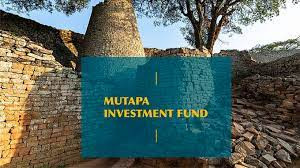
FINANCE and Investment Promotion minister Mthuli Ncube has given the Mutapa Investment Fund (MIF) the mandate to oversee and implement critical reforms that are expected to breathe life into the poor-performing State-owned entities (SOEs).
Presenting the national budget yesterday, Ncube said the government is still addressing the conflict of interest that arose from exercising both the ownership and regulatory functions, which undermined progress on implementation of critical reforms required to improve the performance of SOEs.
Previously, SoEs and local authorities used to contribute 40% to the country’s gross domestic product. Over the years, they have become a drain to the fiscus.
Through Statutory Instrument 56 of 2023, President Emmerson Mnangagwa amended the Sovereign Wealth Fund of Zimbabwe Act, which included the transfer of the government’s various shareholdings in 20 entities to the fund.
The fund was also renamed MIF.
“On the State-owned enterprise reform….as part of the SOEs reform agenda, the government is addressing the conflict of interest that arose from exercising both the ownership and regulatory functions, which undermined progress on implementation of critical reforms required to improve performance, as well as achieve the national vision,” Ncube said.
“The Mutapa Investment Fund, a sovereign wealth fund, was established to deal with this. The fund will, therefore, be expected to implement measures that will strengthen the targeted parastatals’ governance frameworks and ensure the operational profitability of the SOEs.”
The 20 SoEs under MIF include Defold Mine, Zupco, Kuvimba Mining House, Silo Investments, the National Oil Company of Zimbabwe, the Cold Storage Commission, PetroTrade, POSB, NetOne and the National Railways of Zimbabwe.
- Chamisa under fire over US$120K donation
- Mavhunga puts DeMbare into Chibuku quarterfinals
- Pension funds bet on Cabora Bassa oilfields
- Councils defy govt fire tender directive
Keep Reading
Others are TelOne, Arda Seeds, Zimbabwe Power Company, PowerTel, Allied Timbers, Telecel Zimbabwe, Air Zimbabwe, Industrial Development Corporation, Cottco, AFC Limited and Hwange Colliery Company.
The fund’s objectives are to secure investments for the benefit and enjoyment of future generations of Zimbabweans, to support the development objectives of the government, including its long-term economic and social development; to support fiscal or macroeconomic stabilisation, and to contribute to the revenues of Zimbabwe from the net returns on its investments.
Statutory Instrument (SI) 156 of 2023 removed the requirement to submit reports before Parliament, with MIF now exclusively reporting to the President and the finance minister.
This is a departure from a previous position where the SWF was required to submit quarterly reports to the finance minister, who would table them in Parliament.
Chipo Mtasa was recently appointed to chair the board of the fund as the government moves to operationalise the former sovereign wealth fund.
The appointment of the board came after consultations with stakeholders and Mnangagwa had taken a substantive and deliberate decision to operationalise the fund as well as to capitalise it appropriately.
Economist Prosper Chitambara said: “SOEs will need to be reformed. There cannot be a one-size-fits-all approach. Some will need to be privatised and some just need to be commercialised just to make sure that they are allowed to work efficiently and optimally. (There is a need to) address issues of corruption and ensure that there are good corporate governance practices.”







